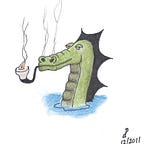Be More Like Scrooge
This time of year, can be a bit crazy with the rushing to purchase gifts, traffic, and the shopping crowds. To compound the problem, the nation is pandemic. Then add to the mix the politically correct crowd and now the Christmas holiday is turned into a battle ground over semantics and the hidden war on Christmas to removal Christ from the holiday. Is it any wonder that the spirit of Christmas is lost by many?
One of the things that we like to do during this time of year is watch the Christmas Carol movies base on Charles Dickens novel “A Christmas Carol” published in 1843. I have several versions ranging from the silent film era to some of the latest releases including the 1951 version with Alastair Sim, which is probably the standard to compare all other versions. Each film puts a slightly different twist or emphasis on portraying the characters. I think what makes the story so popular is how it address issues that cross time. The struggle between the classes, the exploitation of the poor, and the treatment of our fellow man. These are timeless problems that say a lot about a society and the kind of people we are and want to be.
Fred, Scrooge’s nephew, at the beginning gives an excellent speech concerning Christmas “I have always thought of Christmas time, when it has come round…as a good time; a kind, forgiving, charitable, pleasant time: the only time I know of, in the long calendar of the year, when men and women seem by one consent to open their shut-up hearts freely, and to think of people below them as if they really were fellow-passengers to the grave, and not another race of creatures bound on other journeys. And therefore, uncle, though it has never put a scrap of gold or silver in my pocket, I believe that it has done me good, and will do me good; and I say, God bless it!’” Of course, to this Scrooge says his famous Bah Hum Bug! Yet, I wonder how many people see Christmas as a time of good will to their fellow man? Or how many see their neighbor “as a fellow-passenger to the grave”? The green-eyed monster of greed and mass consumption seems to have taken over the holiday. When standing in line at midnight and trampling their neighbor for a thing that will lose its luster in a month becomes a holiday tradition, I think we have missed what Fred was talking about.
In one version, Patric Stewart playing Scrooge, ask the ghost of his old partner Jacob Marley, why he suffers so because he was a “good” businessman. In response, Marley screams “mankind was my business, their common welfare was my business.” In another classic version with Albert Finney as Scrooge, we see Scrooge going around to various debtors and demanding payment on loans he has made to them. Here we see Scrooge taking advantage of the poor and forcing them into deeper debt or be forced into workhouses and/or lose their livelihood. This is not much different than the modern credit card industry. Once they get you hook, they drain away the resources of the household. There is even a credit card company offering a card with 79% interest. The conversation between Scrooge and Marley raises the question “is it right to do something to your fellow man as long as it is under guise of a legal business transaction?”
In another scene the Ghost of Christmas Present takes Scrooge to Fred’s house. Scrooge sees Fred toasting his uncle even with complaints from his guests. Some guest even openly state that they hate Scrooge. Fred displays some real humane and compassionate attitude. Not only does he rebuke his guest without anger or malice, but he also sees his uncle’s real condition as a man poor in spirit with a real need for a changed heart. Do we see the other shoppers as competitors and adversaries or people who are truly poor in spirit and in need of compassion and love.
The Ghost of Christmas Present also takes Scrooge to Bob Cratchit his clerk’s house. Here we see that while poor, there is joy and happiness within the home. In a very interesting gesture of gratitude, Bob toasts Scrooge for what has been provided. Even though he really is over worked and under paid. Bob’s wife does object to the toast, but Bob insists that at least for the days sake. In the Cratchit home we see gratitude, humility, love, and peace. All of these seem to be missing from the modern home, which must have the big house, the new cars, and the latest gadgets. The modern family, in one respect, is not much different than the Cratchit family living paycheck to paycheck. The difference is the Cratchit family is much happier and content.
So, is this going somewhere or what? The point is to ask the question “should we be more like Scrooge this time of year?”
Before answering the question, you need to think about the end of the story. After Scrooge has encounter with the Ghost of Christmas Future, he repents of his ways and becomes a charitable fellow. What makes Scrooge the role model is that it is noted that Scrooge kept the spirit of Christmas all year and became the best master and friend that the city knew. This makes Scrooge the role model for he shows compassion, understanding, and love to his fellow man.
Maybe we can reclaim Christmas spirit by being a bit more like Scrooge, living it the year round reaching and touching people. Giving them the changed heart, which ultimately will change society.
Just a few thoughts about the Spirit of Christmas. I hope you all have a joyful holiday.
